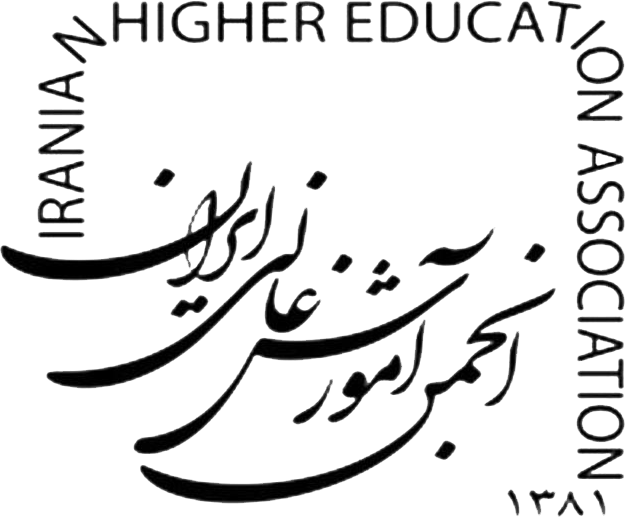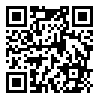Volume 17, Issue 2 (2025)
ihej 2025, 17(2): 82-106 |
Back to browse issues page
Download citation:
BibTeX | RIS | EndNote | Medlars | ProCite | Reference Manager | RefWorks
Send citation to:



BibTeX | RIS | EndNote | Medlars | ProCite | Reference Manager | RefWorks
Send citation to:
Ghaderi K, Gholami K, Maroofi Y. Neoliberal-Ideological Governmentality: Discursive Power and the University in Iran. ihej 2025; 17 (2) :82-106
URL: http://ihej.ir/article-1-2130-en.html
URL: http://ihej.ir/article-1-2130-en.html
1- Ph.D. Student in Higher Education Development Planning, Faculty of Humanities and Social Sciences, University of Kurdistan, Sanandaj, Iran.
2- Associate Professor, Department of Educational Sciences, Faculty of Humanities and Social Sciences, University of Kurdistan, Sanandaj, Iran. ,kh.gholami@uok.ac.ir
3- Associate Professor, Department of Educational Sciences, Faculty of Humanities and Social Sciences, University of Kurdistan, Sanandaj, Iran.
2- Associate Professor, Department of Educational Sciences, Faculty of Humanities and Social Sciences, University of Kurdistan, Sanandaj, Iran. ,
3- Associate Professor, Department of Educational Sciences, Faculty of Humanities and Social Sciences, University of Kurdistan, Sanandaj, Iran.
Abstract: (5175 Views)
Objective: This study introduces a four-level theoretical framework (discursive, structural, network, and agential) to provide a multi-layered analysis of power mechanisms within the Iranian higher education system. However, as a foundational study, this article concentrates on the discursive level to answer the core research question: what are key discursive mechanisms that construct the ruling "regime of truth", and what are the consequences of this regime?
Method: This qualitative research employs Foucauldian discourse analysis to examine an extensive "archive" of key macro-policy documents (including national strategic plans, ministerial bylaws, and the strategic plans of leading universities). The analysis was conducted in three layers: archaeology, genealogy, and the analysis of socio-cultural effects.
Results: The analysis reveals a complex logic of governance, termed "Neoliberal-Ideological Governmentality." The findings are presented in three main dimensions: (1) Constitutive Mechanisms: This regime is constructed through three primary discursive mechanisms: a) a "discourse of quantitative and metric-based assessment" with a neoliberal logic; b) a "discourse of instrumental and ideological steering of science" with a state-control logic; and c) a "discourse of control and discipline" that defines the boundaries of truth. (2) Architecture of Power: These mechanisms operate within a coherent, four-layered architecture (ideological, structural, functional, and disciplinary) that provides the entire system with coherence and stability. (3) Consequences: The dominance of this regime yields three key consequences: a) the construction of a paradoxical "ideal academic subject" (simultaneously entrepreneurial and compliant); b) the redefinition of "valid knowledge," marked by the dominance of applied knowledge over critical inquiry; and c) the transformation of the university's mission towards that of an economic institution.
Conclusion: The study concludes that any meaningful reform in Iranian higher education requires a critical rethinking of the dominant model of governmentality and its constitutive mechanisms. Accordingly, recommendations such as revising quantitative evaluation systems, providing targeted support for the critical humanities, and redefining the university's cultural and social mission are deemed essential for moving toward a more dynamic and equitable system.
Method: This qualitative research employs Foucauldian discourse analysis to examine an extensive "archive" of key macro-policy documents (including national strategic plans, ministerial bylaws, and the strategic plans of leading universities). The analysis was conducted in three layers: archaeology, genealogy, and the analysis of socio-cultural effects.
Results: The analysis reveals a complex logic of governance, termed "Neoliberal-Ideological Governmentality." The findings are presented in three main dimensions: (1) Constitutive Mechanisms: This regime is constructed through three primary discursive mechanisms: a) a "discourse of quantitative and metric-based assessment" with a neoliberal logic; b) a "discourse of instrumental and ideological steering of science" with a state-control logic; and c) a "discourse of control and discipline" that defines the boundaries of truth. (2) Architecture of Power: These mechanisms operate within a coherent, four-layered architecture (ideological, structural, functional, and disciplinary) that provides the entire system with coherence and stability. (3) Consequences: The dominance of this regime yields three key consequences: a) the construction of a paradoxical "ideal academic subject" (simultaneously entrepreneurial and compliant); b) the redefinition of "valid knowledge," marked by the dominance of applied knowledge over critical inquiry; and c) the transformation of the university's mission towards that of an economic institution.
Conclusion: The study concludes that any meaningful reform in Iranian higher education requires a critical rethinking of the dominant model of governmentality and its constitutive mechanisms. Accordingly, recommendations such as revising quantitative evaluation systems, providing targeted support for the critical humanities, and redefining the university's cultural and social mission are deemed essential for moving toward a more dynamic and equitable system.
Keywords: Discursive Power, Iranian Higher Education, Foucauldian Discourse Analysis, Neoliberal-Ideological Governmentality, Regime of Truth.
Type of article: Research |
Subject:
Special
Received: 2025/07/14 | Accepted: 2025/11/1 | ePublished ahead of print: 2025/11/15
Received: 2025/07/14 | Accepted: 2025/11/1 | ePublished ahead of print: 2025/11/15
Send email to the article author
| Rights and permissions | |
 |
This work is licensed under a Creative Commons Attribution-NonCommercial 4.0 International License. |





